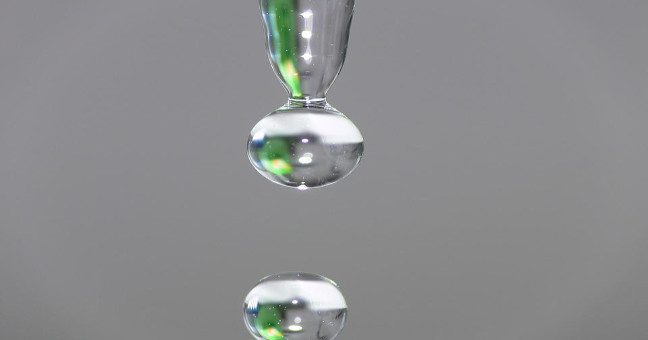If you have ever stood by your air conditioning unit, you may have noticed a puddle or stain of water underneath it. You probably wondered how it got there. Truth be told, air conditioning units produce water as a part of their cooling process. Water is necessary for the unit to cool air, while the rest is dispersed out the back of the unit. Here is why AC units produce water, so you can get tips on preventing possible leakage and help it maintain high levels of efficiency.

One primary cause of moisture from an air conditioner is high humidity, which as you may know, will be most present during the hot summer months. Humidity is the amount of water in the air. One way that your unit makes the air in your home more comfortable is by removing moisture, so when you’re dry, you are staying cool. The opposite tends to happen when you’re hot; the air is moist and sticky.
Air conditioning units cool air by refrigerating it. Inside the machine are two groups of coils that are linked to a condenser. One group of coils is cold, and the other is hot. Chemicals that are in these coils evaporate and condense time and time again, making the coils cooler. Air is blown through these coils, making said air generally colder by the time it is dispersed throughout your home.
These coils also serve the purpose of forcing moisture out of the air. It will wring out water in the same manner that a can of soda pop will produce moisture along its exterior. Some of this water will evaporate and keep the coils cool, and the rest of it goes out the back of your air conditioning unit.
When you see your air conditioning unit producing water means that your air conditioning unit is working properly. If you do not see water come out of the unit, there may be a problem with it. The water may be running from inside the unit or into your home, or it could actually be freezing onto the coils. If you aren’t seeing water issuing forth, let AC repair in Houston Heights, TX know of your situation.
Your air conditioner needs to drain most of the water that it produces. If the drain line appears to be plugged or stuffed, there will tend to be a blockage of water inside. This can result in a leak in your drain line. If you happen to notice the air conditioner leaking water from indoors, unplug it and inspect its drain line. Be sure there are no holes in the line and that it is tightly secured before powering your AC unit back on. Contact AC repair providers in Houston Heights, TX for any problems with your unit.
When there is too much water in an air conditioner, there is a chance that its coils can freeze over, which will affect the performance of your unit. The hot air outside will clash with the cooler air coming from your unit and condense, which will take humidity from the air and cause your air conditioner to drip profusely down its sides. If you ever see this, be sure to keep your windows shut to keep the hot air away.
By knowing more about your air conditioner, you will be able to keep it in a stable condition. You can learn more about how it operates and how it functions during its operation in order to make better decisions when it comes to air conditioner care.


